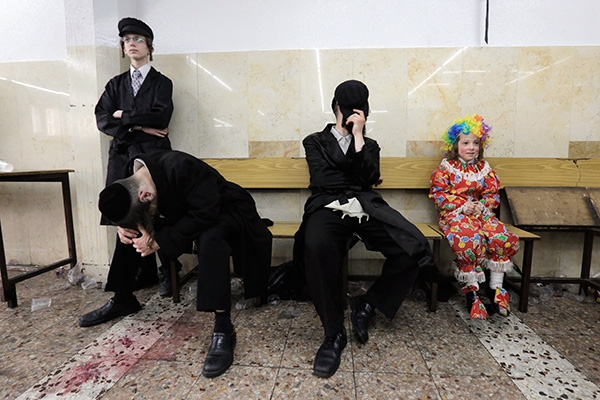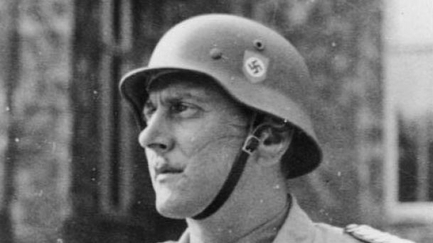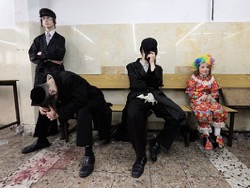
Political scientist Zeev Khanin about how the Jews crossed multiculturalism with nationalism
Professor, Department of political science at Bar-Ilan University Dr. Zeev Khanin attended a lecture by the Israeli Cultural Center in Moscow and spoke about the portrait of modern Israeli society and also on how he manages to balance between multiculturalism and nationalism. “Ribbon.ru” publishes the main points of his speech.
Where in Israel Jews
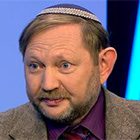
Zeev Khanin
Photo: 9tv.co.il
There were times when Israeli society was based on a system of melting pot of Jews arriving from the Diaspora were to leave his past and to be integrated in what is called the Israeli Zionist culture. Only in the last 25 years in Israel, according to the Organization for international cooperation and development, profits of 1 million 400 thousand migrants from different countries.
Since 1949 till today in the country there were two large aliyah (“ascent”, the repatriation of the Jews — approx. “The tape.ru”). The first is the arrival of immigrants from countries East and Africa, while the number of immigrants was almost the same as the number of inhabitants of the country. The second is from the former Soviet Union, since 1989 in Israel came 1 109 863 people.
The peaks of the waves and what was before them, show the structure of Israeli society, which is divided into three broad categories: First, Second and Third Israel. These terms we use, to show the layers that make up the society of the country. If from the late 70’s to early 80-ies we thought him ideologically as a whole (in this case cultural differences were ignored), today Israeli society has become multicultural, but not in the usual sense.
European multiculturalism is built on the idea of ignoring ethnic differences. There is civic nationalism: anyone who has, for example, French passport is French. Ethnic French, Germans, Englishmen believe that this is enough, but then it turns out that multiculturalism and civic nationalism is not enough to declare. That is why a melting pot, a defunct for about 50 years, exploded. In the end we have a situation in which all these ideas (including nation building), based on national models of multiculturalism do not work.
There are three exits from the situation. First: pretend that nothing is happening — that is, to engage in the adaption of migrants (if not the first generation, second or third integrated). Second exit: return to classical nationalism — this approach follows a small group of them in Europe, called new right. The third way is to combine these two approaches, and the small but proud country called Israel managed to.
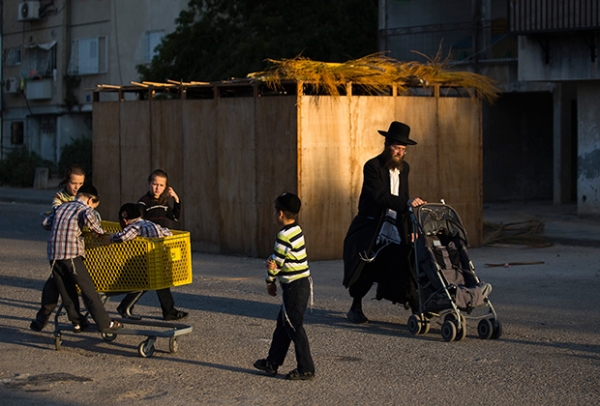
Israel Jews is not limited to
To say that the Israeli model is relatively perfect, is to step on a throat to an own song. Today she tries to combine the ideas of modern liberal States with the idea of ethnic nationalism (“the Zionist state”, “state of Jews” or “Jewish state”). The first term means that Jews are the majority, and the second — that the symbols and values should be based on the Jewish tradition.
Then begins a long discussion of what constitutes Jewish tradition. Although the Jews in Israel really are the majority, the structure of society is not restricted by them. About two months ago there were published data showing that the country’s population is approximately 8.4 million people. In 1948 it was $ 872 thousand, i.e. 70 years increased 10 times.
Three-quarters are Jewish, about 5 per cent “others” (who arrived under the law of return but are not registered as Jews). The office of statistics allocates them in a separate category: families, children of Jews, and grandchildren of Jews, spouses of non-Jews. Previously, the bulk of “other” came from the former Soviet Union, but lately most come from Western Europe, USA, Latin America. It is the Israelis who are neither Jews nor Arabs.
Non-Arab Arabs
About 20 percent of the population of Israel is Arabic. For many years they were recorded in Israeli Arabs (except Druze and Circassians, who initially managed to prove that they are not Arabs).
Drusen — carriers of separate identity. Someone thinks that they are the descendants of the crusaders, some people from the Caucasus, some group of the population professing a specific form of monotheism. Completely loyal Israeli Druze, serve in the army, get an education and so on. The Druze of the city are the cities of special economic development.
The Circassians with the same story — they are descendants of the Caucasian Circassians, which was taken after the defeat of Shamil in Palestine. Actually, most of them Circassians. About their roots they say very vague, but it’s also patriots, they are serving in the army. The young people mostly switched to Hebrew. Some time ago, the Circassian community has asked permission to translate the teaching of General subjects in Hebrew, and the sacred discipline to be taught is still in Arabic. The Ministry of education saw this as a threat to the stratification of the Arab collective in Israel, and therefore the request was rejected.
As for the rest of the Arabic-speaking, and in their midst there are interesting phenomena. For example, Arab Christians. In most Arab countries the Christians were the bearers of the local version of nationalism. If you look at the nationalist movements in Morocco, Algeria, the first row will see them. The status of a person was defined by there religion, so the Muslims were full, and the Christians do not. When the opportunity arose religious identity to replace national, Christians were in the forefront.
If we look at the Arab Israeli collective movement, it turns out that the Arab or Palestinian nationalists see themselves not so much by representatives of the Israeli national minorities, but part of the greater Arab world. Israeli public opinion has long been perceived by Arab Christians as part of this discourse.
We recently celebrated the fifth anniversary of the “Arab spring”. Over the years, it became clear that the only group of Arabs that can count on a high standard of living, — the one who lives in Israel (except for citizens of the principalities of the Persian Gulf). The same can be said about the Arabs in Judea and Samaria.
Israeli Arabs began to occur a process of gradual detachment. First in the queue — Christians, whose level of education is consistently higher than that of the Jews coming from the East. Family structure they have is about the same as in a Jewish environment. Three years ago there was a breakthrough — the Israeli interior Ministry allowed those who wish to record themselves as Arameans (Assyrians). The ideologists of this movement insist that they are descendants of Arabs. Then it turned out that among the Muslims there are other groups of people with an Arab background. Now everywhere there is a revival of ancient identities, and, according to our experts, about 35 percent of Muslim Kurds.
The state in this situation must somehow be determined. The first option consists in the inhibition of this process, when the government makes it clear that he sees a single Arab group, which has its own leaders. So Benjamin Netanyahu has once decided to work in the Arab sector, its development has allocated 15 billion shekels. Netanyahu met with members of the public, and with members of the Arab list. This is the approach adopted in the last 20 years: it is convenient, when there is one address, and all ideas of stratification we are not interested.
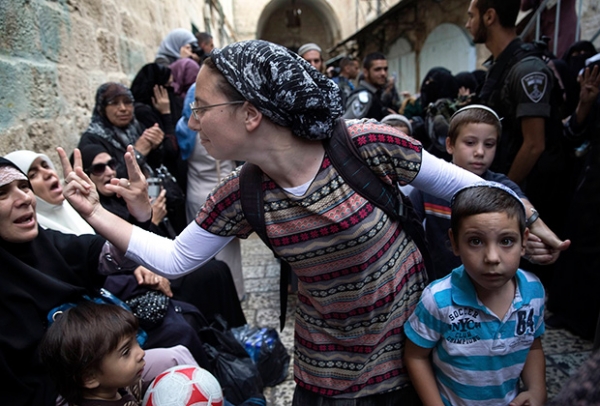
Photo: Finbarr O’reilly / Reuters
The second approach: the state should support that identity. This fits in the idea of multiculturalism. The question arises about the border: does this mean that in Israel live druses, Circassians, Arabs, Palestinians, Russians and Ethiopians, which in origin accidentally become Jews? In other words, should we realize the European model?
Third option: we now have the Israelis and the Jewish character of the state — what was important in the previous step. Or, on the contrary, there are Israeli Jewish collective (the titular nation), inside it has its own subgroup, but their collective identity is more important. All other groups — citizens, they have not just a right recognized by the state, but also supported individual and group identity, they are ‘other’, they must recognize the Jewish status of the country.
We in Israel there is a debate. From the point of view of the European understanding of liberal democracy, no titular nation in Israel should not be. But the Israelis are not ready to give up the Jewish character of the state. What about multiculturalism? It turns out that these things do not always contradict each other. Can exist quite a multicultural country that gives rights to any ethnic group, but above all this is Israel as a Jewish state.
In practice it works as follows: today, Israel recognizes all non-Jewish groups as collectives. Arabs and Druze have their own form of national autonomy — the courts, schools and so on. There is a question about the academic transformation in Nazareth. There is policy — Israel interested in Israeli Arabs were educated here.
Now back to the country by the Arabs, educated in Damascus. What ideas they do come back, we can only guess. For example, recently there was talk that Samaria had registered the first cell of the ISIS (“Islamic state”, the organization was prohibited in Russia — approx. “The tape.ru”).
Israel is a democratic country
Israel with its system of autonomies is a liberal-democratic country that guarantees the rights of all citizens. In a sense these rights even more than in most of the European powers, at least on a symbolic level.
For example, why Israel is more democratic country than Britain? In a sense, we are still a British colony (case law, the status of the Supreme court), but we have no requirement that the President can only be a Jew is a Jew, and in the UK the king could only be an Englishman.
In practice, in Israel there is no difference between the different origin of the inhabitants of the country. At the group level, the state also supports all communal and structural education. For example, the school’s Christian and Muslim sectors, funded by the state, as close to a private education, such as ultra-Orthodox. When Christians complain, they believe that there is an element of discrimination: the ultra-Orthodox, the state has funded almost 100 per cent and only 70 per cent.
In General, the authority to conduct acts of civil status (marriages, divorces, belonging to the community) the Ministry of internal Affairs reports of religious communities to act in accordance with tradition. In this sense, we can say that our country is liberal-democratic, acting in the spirit of the concept of multiculturalism.
The only point where there is a discrepancy with Europe is nationalism. The Europeans went through, they stated that individual and collective autonomy extends to national status. If until recently, for example, in France the national and ethnic identity were regarded as one and the same, today there is civic nationalism.
In Israel, this step was not done, since it was created as a state for the Jewish people. If it stops being that, then its pointless existence. The second point: if we were somewhere between Tver and Luxembourg, maybe the problem was not, but we are in the middle East. Now the middle East came to Europe, so Israel comes from the fact that being a Jewish state means to be a European state, a democratic, highly developed.
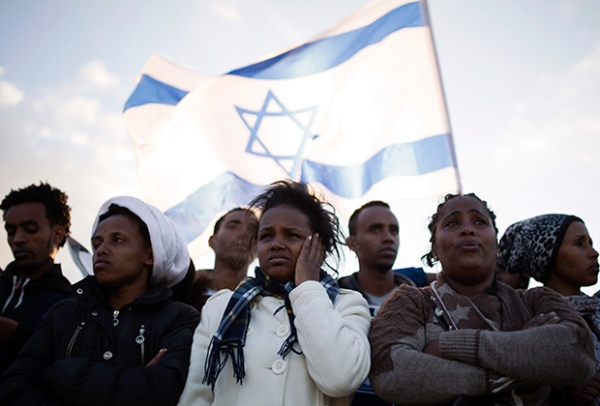
Migrants in Israel
Photo: Amir Cohen / Reuters
How Israeli multiculturalism
Netanyahu a few years ago I was in Moscow at the meeting with the community led the audience in shock, saying that there are three great powers: China, the U.S. and Google, but Google is Israel. To date, there are no multinational companies that would not open their research center. The last “broke” the virus that have opened their center in Haifa.
An intelligent man is the one who first grandfather, then father, and then he graduated from the University. In a situation where it is simply impossible to buy up technology companies, an important overall context and the educational level of the population. In Israel managed to reach a high level of education, precisely because it is a Jewish state. The alternative, if such ceases to be, is a state of the Arabs, the usual middle Eastern country.
So we have a number of considerations on which Israeli society is not ready to abandon “evreiskoi”. First, most of our cousins still live in the Diaspora, and we cannot make a decision for all. Secondly, Israel is a Jewish state in accordance with the stated objectives: to provide the Jews physical and economic security. And third: we exist so that every Jew could realize the inalienable right to live among his people.
For many decades our state leaders to resist Israeli imperialism and not positioned itself as a state of all Jews in the world. The situation is different today, given that the Palestinian-Israeli conflict — a conflict with the whole Arab world. We are interested that Israel was again alsheevsky project. If you look at polls conducted among American Jewish youth, 20 percent of respondents say that Israel occupies an important place in their identity.
Recently there was a meeting of the Knesset Committee for Aliya, absorption and the Diaspora. Deputies said that they should not seek the student organization orientation on Israel. The main goal is the preservation of the youth of its Jewish identity. Not sure this can be done by abandoning Israel. Migrants it is important that they have their own country (one of the reasons that, say, in Canada, Jewish schools are very high quality and generally developed the Zionism of the Diaspora).
If you’re a Jew, but say that Israel has nothing to do with you, who are you? However, to be a full-fledged Israelite, you need to have some kind of affiliation. So our multiculturalism. As you can see, it does not change neither the Jewish state nor of the titular nation, but also does not contradict democracy.
Israel as a country of victorious NEP
If we look what is happening in 80 percent of the titular nation, you will see the following: for a long time this team was built on the principle of melting pot. The immigrant was told that he must forget his past galetnoe (Galut — the dispersion, the forced exile of the Jewish people outside of his native country — approx. “The tape.Roo”) and should quickly become part of the Israeli Jewish community. An important role in this process played a Hebrew, because Hebrew culture of the liberal, socialist and secular.
The relationship between the secular part and the religious community built on the model of mutual exclusion (what is called secular-religious status quo, which in his time reached Ben Gurion). The agreement was this: everyone has his own vegetable garden, the meeting takes place in the middle. Jewish holidays — national kashrut in all government institutions, but religious community recognizes the secular part of society.
Ben Gurion and his team believed that the religious group is a temporary phenomenon, designed to disappear after two or three generations, and religious leaders believed that rest enough in secular Zionism and get back to tradition, so, too, can wait two or three generations.
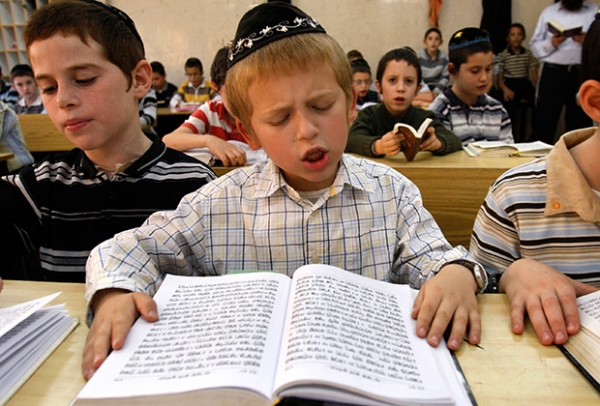
Till the early 60-ies in Israel waged a cultural war against two languages: Arabic and Yiddish. Arabic was the language of the enemy, and Yiddish was the enemy languages: fined performances in Yiddish, was forbidden the Newspapers in Yiddish. As a result, in 70-e years the army began to experience a shortage of Arabic at 700 thousand immigrants from Arab countries.
This is not the Stalinist regime, Israel was a country of victorious NEP. Until now the Israeli political party system is the reserve of 20-ies of the USSR: socialist revolutionaries, social-Bolsheviks, cadets and others. The melting pot is broken at the turn of the 70s-80s, and then into the political arena began to come out of the Second Israel. There was the “Black Panthers”, led to the fact that the society was ready to accept “the other”, who suddenly became the cultural trendsetter of fashion. The result was a division between elite culture of the First and Second Israel, which took its place in mass culture — from clothing to music and the tradition of municipal control.
In the 90 years the situation has changed again. When I arrived the so-called “Golden million”, Israel was ready to accept it. Originally from the former Soviet Union is now represented, for example, in the legal and journalistic systems in the military. At the same time, a lot of them in the sphere of high technologies, open education, open media, that is, where there is no use of the traditional elites of the First and Second Israel. Immigrants have mastered niches that were empty or did not exist, because each successive wave of immigrants arrives and offers something new.

